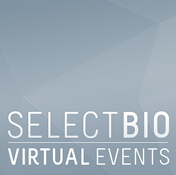Other Track AgendasTrack 1 | Track 2 | Please note all times are in EST (Eastern Standard Time)

Tuesday, 17 June 2014 |
Screen Design & Assay Technology |
| | 10:00 | Advanced Cell Culture and Assay Systems for Biomedical Research
Anthony Mitchell Davies, Director, Trinity College Dublin, Ireland
Currently one the biggest drivers in the field is the need to improve the relevance of the cell based assays and culture systems, to achieve these aims many are turning their attention to the use of primary cells and/or 3 dimensional cellular assay models. In this presentation we will for the first time report a new range of engineered cellular assay and culture systems that will closer mimic the cellular micro-environments found in vivo and describe how these can be used in conjunction with the very latest cellular analysis technologies to gain new insights into cellular function and disease.
| 11:00 | Pivot Park Screening Centre: The Pivot for Screening Knowledge and Expertise
Helma Rutjes, Head, Pivot Park Screening Centre, Netherlands
The Pivot Park Screening Centre is a high tech screening facility focused on early drug discovery. As screening facility, we make automation accessible for Life Science research, offering anything from small screens (hundreds of samples) up to high throughput screens (>500K).
| |
Phenotypic Screening |
| | 13:00 |  | Keynote Presentation Heterogeneity of Cellular Responses to Perturbagens in Drug Discovery and Development
Lansing Taylor, Director, University of Pittsburgh, United States of America
It is generally assumed in the application of High Content Screening (HCS) that the cellular data exhibit a normal distribution. When a normal distribution exists, a well average approach to screening is possible. However, heterogeneity is a common attribute of cells and this can impact the design and implementation of a screen. A set of Heterogeneity indices (HI’s) have been developed to report out along with mean and standard deviations in screening/profiling data. Examples from drug discovery and drug development are presented. |
| 14:00 | Diversity-oriented synthesis of small molecule peptidomimetics to address lead identification in drug discovery
Andrea Trabocchi, Assistant Professor, University of Florence, Italy
Diversity-Oriented Synthesis of peptidomimetics is a novel approach to generate structurally diverse compounds addressing protein-protein interactions, combined to chemical genetics as a tool in chemical biology for selecting small molecules in phenotypic screening and target identification.
| 15:00 | Phenotypic Profiling of Compounds in a Physiologically Relevant Cell Assay System
Mohanraj Dhanabal, Group Leader, EMD Serono Inc, United States of America
A phenotypic screen using primary cell system will be discussed.
|
Wednesday, 18 June 2014 |
Academic Drug Discovery |
| | 10:00 | Machine Learning for Building Models of Cell Perturbation
Robert Murphy, Professor, Carnegie Mellon University, United States of America
Machine vision can be used to convert HCS images into models of cell components and how drugs affect them. Active machine learning can be used to build models of the effects of many drugs on many targets without exhaustive experimentation.
| 11:00 | Innovative Collaboration and Partnering in Early Discovery
Peter Simpson, Director, AstraZeneca, United Kingdom
I will discuss strategic considerations in Identifying opportunities and Delivering real open innovation within Pharma early drug discovery. I will discuss several examples of Building mutually beneficial discovery partnerships between Pharma and institutions, and use these to illustrate the practical considerations on how to deliver value from early discovery partnerships. | 12:00 | SciLifeLab Drug Discovery & Development Platform
Per Arvidsson, Director, Karolinska Institutet, Sweden
| 13:00 | Rise in Academic Drug Discovery
Barbara Slusher, Associate Professor/Director, Johns Hopkins University School of Medicine, United States of America
The details of the changing ecosystem and examples of academic led drug discovery programs will be reviewed. | 14:00 | |
|

 Add to Calendar ▼2014-06-17 00:00:002014-06-18 00:00:00Europe/LondonTrack 2SELECTBIOenquiries@selectbiosciences.com
Add to Calendar ▼2014-06-17 00:00:002014-06-18 00:00:00Europe/LondonTrack 2SELECTBIOenquiries@selectbiosciences.com